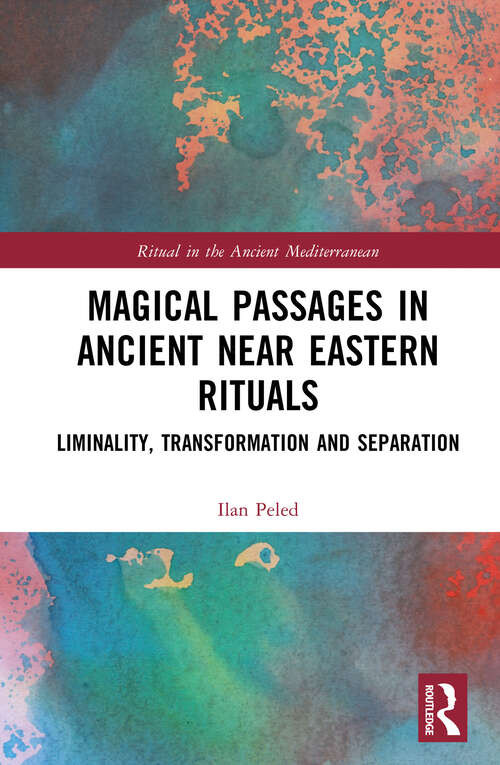Magical Passages in Ancient Near Eastern Rituals: Liminality, Transformation and Separation (1) (Ritual in the Ancient Mediterranean)
By:
Sign Up Now!
Already a Member? Log In
You must be logged into Bookshare to access this title.
Learn about membership options,
or view our freely available titles.
- Synopsis
- This book focuses on the element of thresholds – makeshift gates, makeshift structures and house doors – as concepts of liminality in ancient Near Eastern magical rituals, and the idea of transformation they reflect.Readers gain an in-depth understanding of theories of liminality and rites of passage, and how they illuminate fascinating aspects of social behavior and religious and cultic practices in ancient Near Eastern societies, specifically those of Hatti and Mesopotamia. Ritual liminality, manifested in the use of makeshift and permanent architectural elements, was meant to facilitate two different aims: transformation from one category to the other (using makeshift gates and structures) and separation between categories (using house doors). The book presents the pertinent ritual texts in their original languages, analyzes these texts in detail and offers comparative discussions of the different cultures that practiced these rituals.Magical Passages in Ancient Near Eastern Rituals is suitable for students and scholars interested in ancient religions, rituals and cults, particularly in the ancient Near East, as well as those working on ancient history, philology, anthropology and religious studies more broadly.
- Copyright:
- 2026
Book Details
- Book Quality:
- Publisher Quality
- Book Size:
- 264 Pages
- ISBN-13:
- 9781040415085
- Related ISBNs:
- 9781003636397, 9781041066323, 9781040415054
- Publisher:
- Taylor & Francis
- Date of Addition:
- 09/24/25
- Copyrighted By:
- Ilan Peled
- Adult content:
- No
- Language:
- English
- Has Image Descriptions:
- No
- Categories:
- History, Nonfiction, Religion and Spirituality
- Submitted By:
- Bookshare Staff
- Usage Restrictions:
- This is a copyrighted book.
